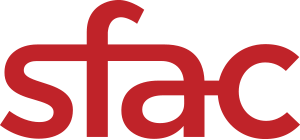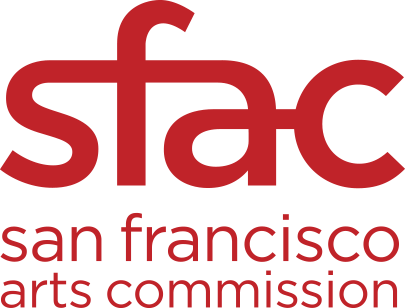 I am drawn to granite as a primary material for this artwork because it has existed through all histories embedded in the space. Using granite and steel, I am able to explore and juxtapose a human and geologic time scale.
I am drawn to granite as a primary material for this artwork because it has existed through all histories embedded in the space. Using granite and steel, I am able to explore and juxtapose a human and geologic time scale.
Across the site and the larger downtown area, granite was a key building material used in the formation of the city. It is still visible in curbs, cobblestones, and the building architecture in older sections of the neighborhood. The material was quarried in the Sierra Nevada Foothills in the mid-1800’s. It acts as a conduit, tying San Francisco to the mountains and foothills, and is a symbol of events that changed San Francisco and Rincon Hill forever. Now, those elements are removed and replaced with concrete and asphalt. Their removal signifies the ever-changing nature of the site.
Currently, the site is situated amongst a forest of high-rise buildings and new construction. The artwork incorporates stainless-steel bands finished to a reflective surface, wrapping around and encompassing the granite boulders. These bands speak to the current materiality of the site, the human hand on the landscape, and the transformations that have taken place and continue to take place both in Rincon Hill and the larger built world.
In addition to addressing the human narratives in the space, the artwork also asks the viewer to reflect on their notion of what they consider to be natural. Many of the terms we use to describe environments were popularized during the mid-1800’s. This period of westward expansion and rapid industrialization had significant influence over how we relate to our surroundings. The piece consists of three elements embedded within the meadow of the site. They will appear as if they have always been a part of the landscape. The hybrid forms will challenge the viewer to examine their own place and role within the environment.
Together with their arrangement in the space, the artwork will create a quiet space for visitors to reflect on the site’s past, present, future and juxtaposes the hustle and bustle of downtown. It engages with the materiality of the site and its connection to natural spaces while also acting as a vessel for the accumulated histories that make the community what it is today.
View a larger image of the proposal
 The San Francisco Arts Commission is conducting a review process to choose an artist to create a sculpture or series of sculptures for the new Transbay Block 3 Park & Alley. The artwork should be inspired by and responsive to the proposed park design, its natural habitat, physical landscape, site history, and sustainability. Additionally, the work should have a visual impact from a distance yet be integrated into the landscape. Four artists were chosen as finalists by a Public Art Selection Panel to design site-specific proposals for this artwork opportunity: Mark Baugh-Sasaki, Terry Berlier, Cheryl Derricotte, and Kota Ezawa.
The San Francisco Arts Commission is conducting a review process to choose an artist to create a sculpture or series of sculptures for the new Transbay Block 3 Park & Alley. The artwork should be inspired by and responsive to the proposed park design, its natural habitat, physical landscape, site history, and sustainability. Additionally, the work should have a visual impact from a distance yet be integrated into the landscape. Four artists were chosen as finalists by a Public Art Selection Panel to design site-specific proposals for this artwork opportunity: Mark Baugh-Sasaki, Terry Berlier, Cheryl Derricotte, and Kota Ezawa.


 I am drawn to granite as a primary material for this artwork because it has existed through all histories embedded in the space. Using granite and steel, I am able to explore and juxtapose a human and geologic time scale.
I am drawn to granite as a primary material for this artwork because it has existed through all histories embedded in the space. Using granite and steel, I am able to explore and juxtapose a human and geologic time scale.  The Not So Solid Earth is conceived of marrying the deep geological time of San Francisco with the sleek entrepreneurial present. The stainless steel Möbius loop cuts a large eight foot granite boulder in the same way this neighborhood cut through the San Francisco hills in its early ship building days. The vibrantly painted Möbius loop embodies this site as a constant place of change and reinvention. From being submerged under the sea 55 million years ago to being a thriving neighborhood today the Möbius loop represents cycles of continued reinvention and growth through the lens of deep time. This sculpture celebrates the shifting tectonic plates, geological history, and cultural resilience that makes up San Francisco’s East Cut.
The Not So Solid Earth is conceived of marrying the deep geological time of San Francisco with the sleek entrepreneurial present. The stainless steel Möbius loop cuts a large eight foot granite boulder in the same way this neighborhood cut through the San Francisco hills in its early ship building days. The vibrantly painted Möbius loop embodies this site as a constant place of change and reinvention. From being submerged under the sea 55 million years ago to being a thriving neighborhood today the Möbius loop represents cycles of continued reinvention and growth through the lens of deep time. This sculpture celebrates the shifting tectonic plates, geological history, and cultural resilience that makes up San Francisco’s East Cut. The San Francisco Seven is a sculptural artwork that visually illustrates the famous, original seven hills of our city: Telegraph Hill, Nob Hill, Russian Hill, Mt. Davidson, Mt. Sutro, Rincon Hill and Twin Peaks. The sculpture will sit in the Meadow of the new Transbay Block 3 Park and Alley.
The San Francisco Seven is a sculptural artwork that visually illustrates the famous, original seven hills of our city: Telegraph Hill, Nob Hill, Russian Hill, Mt. Davidson, Mt. Sutro, Rincon Hill and Twin Peaks. The sculpture will sit in the Meadow of the new Transbay Block 3 Park and Alley. Transbay History Popups depicts moments from the history of the Transbay, East Cut and Rincon Hill neighborhood in a series of hand painted aluminum dioramas placed in the Habitat Meadows of the Transbay Block 3 Park. The dioramas give park visitors and local residents a chance to interact with the social and architectural past of the neighborhood where the park is situated. At the same time, this project adds a visual narrative to the park, connecting separate meadows with images that tell a story of this urban area.
Transbay History Popups depicts moments from the history of the Transbay, East Cut and Rincon Hill neighborhood in a series of hand painted aluminum dioramas placed in the Habitat Meadows of the Transbay Block 3 Park. The dioramas give park visitors and local residents a chance to interact with the social and architectural past of the neighborhood where the park is situated. At the same time, this project adds a visual narrative to the park, connecting separate meadows with images that tell a story of this urban area.
Opportunity For Public Comment
Please take a few minutes to review these artwork proposals and provide feedback on the public comment forms below. Public comments will be considered by the Review Panel as part of the Final Review Panel meeting where the Panel will recommend one proposal for implementation. Please note that public comments do not constitute a vote.
The Final Review Panel meeting will take place remotely on Monday, August 8, 2022, 1:00–5:00 p.m. All Artist Review Panel meetings are open to the public. An agenda for the meeting will be posted 72 hours in advance of the meeting on SFAC’s website under the Public Meeting section: www.sfartscommission.org
The proposals are available online at www.sfartscommission.org/calendar, in the Public Art Proposal Display section. Comments may be emailed to sfacpublicartcomment@sfgov.org by Thursday, July 28, 2022 at 5:00 p.m.
For more information, please contact: art-info@sfgov.org or (415) 252-2100.